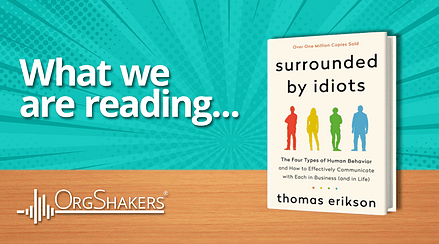Menu

Gen Z Is Dreaming…And Employers Should Listen
Generation Z is no longer ‘the future’ of work – they are here, reshaping workplaces right now. Born between the late-1990s and 2010s, Gen Z already makes up a growing slice of the global workforce and is projected to account for almost a third of US employees by 2030.
For employers, this isn’t a challenge to overcome. It’s an opportunity to harness a generation that is ambitious, tech-fluent, and deeply invested in meaningful work.
What Gen Z Wants
Gen Z brings different priorities compared to previous generations. Deloitte’s 2025 Global Gen Z & Millennial Survey shows 86% of Gen Z rate mentorship and guidance as important, while only 6% see leadership titles as their primary career goal. In other words, this group wants learning and growth more than hierarchy.
Flexibility matters too, but the data is nuanced. Only 23% of remote-capable Gen Z prefer fully remote work. Younger workers actually crave the social learning and connection that come with in-person collaboration, yet they also report the highest levels of workplace loneliness – a tension that smart employers can address by designing hybrid work around meaningful human interaction.
Why Employers Should Welcome This Shift
The traits Gen Z are asking for – mentorship, continuous learning, wellbeing, and authentic connection – align perfectly with what businesses need to thrive. When organizations create pathways for growth and meaningful interaction, they see higher retention, faster upskilling, and stronger cross-generational collaboration.
Rather than seeing Gen Z as ‘hard to manage’, employers should recognize them as the generation most likely to modernize culture and push for healthier, more balanced workplaces.
How to Deliver What Gen Z Needs
- Mentor-First Onboarding and Development – pair Gen Z hires with accessible mentors (and this can be peers, not just senior leaders) and track progress with micro-certifications. This directly answers the call for growth that is being asked for.
- Redesign Hybrid Work for Connection – shift from arbitrary office mandates to team-based collaboration days that prioritize workshops, social learning, and cross-team projects. Have staff work in the office on set days, but ensure these days are purposeful, and that they are not just doing the same work they could be doing remotely.
- Train Managers to Be Coaches – adjust KPIs so managers are measured on how they develop talent. With the right tools and support, managers become the mentors Gen Z expects.
- Prioritize Wellbeing in Practice – go beyond surface-level perks: offer mental health resources, visible EAPs, and time-off policies that encourage balance.
- Measure What Matters – use pulse surveys to monitor mentorship quality, perceived learning, and social connection, and try to act promptly on feedback. This immediately reassures staff that these surveys are not just tick-box exercises.
The Business Case Is Clear
By investing in Gen Z’s aspirations, employers don’t just keep young workers engaged, they future-proof their organizations. The return comes in faster skill development, stronger retention, and a culture that attracts talent across all generations.
Gen Z isn’t just dreaming of better work – they are asking employers to help shape it. And the companies that listen will lead…so, if you would like to discuss how we can help your company make its dreams of sustainability a reality through Gen Z talent, please get in touch with us today.



